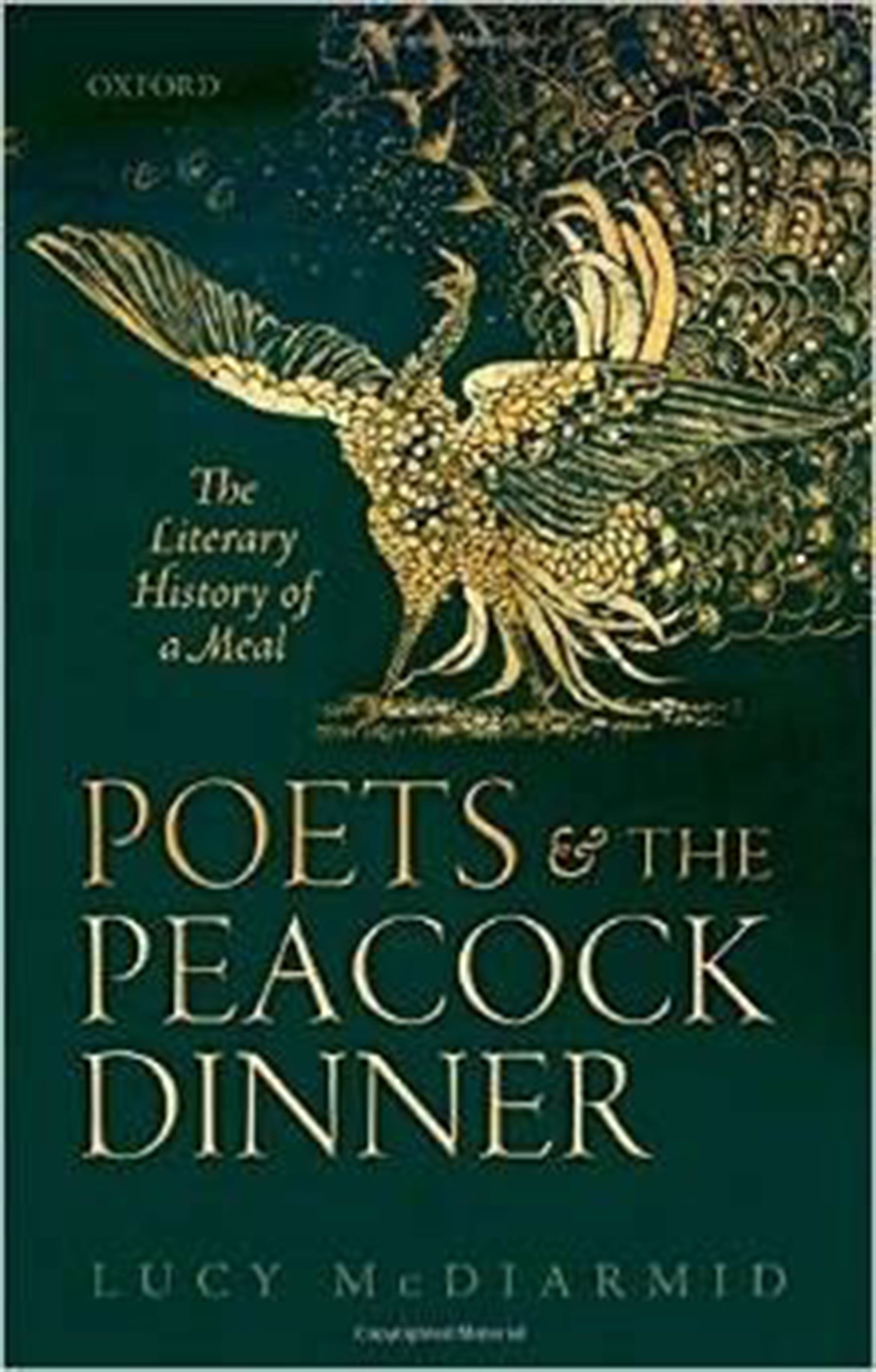Poets & The Peacock Dinner: The Literary History of a Meal, Lucy McDiarmid, review
Feather in the cap for McDiarmid and her slice of history

Your support helps us to tell the story
From reproductive rights to climate change to Big Tech, The Independent is on the ground when the story is developing. Whether it's investigating the financials of Elon Musk's pro-Trump PAC or producing our latest documentary, 'The A Word', which shines a light on the American women fighting for reproductive rights, we know how important it is to parse out the facts from the messaging.
At such a critical moment in US history, we need reporters on the ground. Your donation allows us to keep sending journalists to speak to both sides of the story.
The Independent is trusted by Americans across the entire political spectrum. And unlike many other quality news outlets, we choose not to lock Americans out of our reporting and analysis with paywalls. We believe quality journalism should be available to everyone, paid for by those who can afford it.
Your support makes all the difference."On 18 January 1914 seven poets gathered to eat a peacock," opens this entertaining microbiography. For ten years the literary critic Lucy McDiarmid pondered a four-and-a-half hour meal, its antecedents and aftermath. Her alimentary quest began with an iconic photograph, taken at Wilfrid Scawen Blunt’s manor at Horsham. Blunt, grand old Victorian scallywag, Arabist and anti-imperialist, poses with his postprandial pipe at the centre of a group of younger poets. On his right stands W B Yeats with Victor Plarr and Thomas Sturge Moore; on his left is the young Ezra Pound, accompanied by Imagists Richard Aldington and Frank Flint.
The guests had just honoured Blunt by presenting him with a Futurist marble box, designed by 20-year-old Henri Gaudier-Brzeska (Blunt hated it), containing samples of their avant garde poetry (he disliked that, too). The box was engraved “Homage to W.S.BLVNT”. Aside from a sculpted female nude adorning this vessel, women were excluded from the feast, though Lady Augusta Gregory had facilitated it. After all, as T S Eliot remarked on another occasion: "Too many women... lower the tone."
McDiarmid’s intimate, intricate narrative wittily reveals cross-currents: the young men flattered and challenged the patriarch, jostling amongst themselves. Pound had been wangling an entrance to the literary elite since disembarking from America: the door opened to him at Horsham. The peacock meal was to mean the world to him. Thirty-one years later, caged in a US military camp in Pisa for supporting Mussolini, he recalled it vividly. In a majestic passage in the "Pisan Cantos", Pound memorialised his admission to Blunt’s world: "To have gathered from the air a live tradition/ or from a fine old eye the unconquerable flame/ This is not vanity."
McDiarmid ekes out the meal’s meanings, occasionally over-reading her sources. But Poets & the Peacock Dinner persuasively treats this gathering as a founding moment of Modernism: "After 14 January it became an invisible presence in literary history."
The bird itself was served in full plumage, miming medieval tradition. Apparently, a peacock tastes quite stringy and dry; I expect the diners were glad to tuck into the more Homeric roast beef accompanying it. The Dionysian younger poets, however, were dismembering and consuming not just a peacock, but a symbol – and an archaic symbol at that, for peacocks epitomised late-19th century aestheticism and an art essentially decorative. Poetry, on the verge of global mechanised war, was to be the language of apostasy and iconoclasm.
Oxford University Press , £20. Order for £16.50 (free p&p) from the Independent Bookshop: 08430 600 030
Join our commenting forum
Join thought-provoking conversations, follow other Independent readers and see their replies
Comments